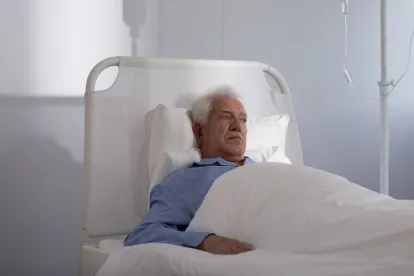The Fourth Circuit recently decided an interlocutory appeal raising important issues arising under the False Claims Act (FCA). See United States ex rel. Michaels v. Agape Senior Community, Inc., No. 15-2145, 2017 WL 588356 (4th Cir. Feb. 14, 2017). The court held that the government has the unreviewable power to veto a proposed settlement in a qui tam action even though it declined to intervene in the case. The court also declined to reach the question of whether the relators could rely on statistical sampling to establish FCA liability and to prove damages, the issue that had attracted considerable attention to the appeal. Id. at *1, 8.
In Agape, the relators alleged that the defendants had improperly billed Medicare and Medicaid for hospice services that were not provided or that were provided to beneficiaries who were ineligible for hospice. The government declined to intervene and the relators litigated the case. During the time period relevant to the litigation, the defendants submitted approximately 50,000 claims to federal health programs on account of hospice services provided to 10,000 different patients. Because of the large number of claims and medical records to review, the relators sought to rely on statistical sampling and extrapolation to prove that defendants were liable for knowingly submitting false claims and to prove FCA damages and penalties tied to the number of false claims. Although the relators contended that it would cost between $16 million and $36.5 million to review all of the medical records and claims, the district court held in a pretrial ruling that the relators could not use statistical sampling and extrapolation either to prove FCA liability or damages because the defendants’ records were all intact and could be reviewed directly. United States ex rel. Michaels v. Agape Senior Community, Inc., No. 12-3466, 2015 WL 3903675, at *6-8 (D.S.C. June 25, 2015).
The relators and defendants subsequently agreed to settle the qui tam case for an amount that has not been publicly disclosed, but the government objected to the settlement because it was “appreciably less than $25 million, the government’s estimate of total damages based on its own use of statistical sampling.” Agape, 2017 WL 588356, at *3. The district court refused to approve the settlement and dismiss the case because it held that the FCA gives the government an unreviewable right to veto a proposed settlement between a relator and a defendant.
Although no final, appealable judgment had been entered in the case, the district court certified for an immediate interlocutory appeal its rulings against the use of statistical sampling and rejecting the relators’ settlement with the defendants. The Fourth Circuit agreed to hear the appeal.
In its recent decision, the Fourth Circuit held that the language of the FCA unambiguously granted the government “absolute veto power” over relator-defendant settlements even where the government has not intervened. Id. at *6-7. The court observed that the plain language of FCA, which provides “[the] action may be dismissed only if the court and Attorney General give written consent to the dismissal and their reasons for consenting,” does not limit the government’s consent-for-dismissal in any manner. Id. at *6-7 (quoting 31 U.S.C. § 3730(b)(1)). The Fourth Circuit rejected the relators’ argument that the government’s objection must be reasonable. Id. at *6-7 & n.6. The court further recognized that “the Attorney General’s absolute veto authority is entirely consistent with the statutory scheme of the FCA,” because even when the government declines to intervene, the United States remains the real party in interest. Id. at *7. Previously, the Fifth and Sixth Circuits had also ruled that the government has the unfettered power to veto a settlement agreement between a relator and a defendant. See United States v. Health Possibilities, P.S.C., 207 F.3d 335 (6th Cir. 2000); Searcy v. Philips Electronics N. Am. Corp., 117 F.3d 154 (5th Cir. 1997). By contrast, the Ninth Circuit has ruled that the government’s absolute ability to veto a relator-defendant settlement applies only during the initial sixty-day period under the FCA allowing the government to intervene, and, following a decision not to intervene, the government may object only with good cause. United States ex rel. Killingsworth v. Northrop Corp., 25 F.3d 715, 722-25 (9th Cir. 1994).
The Fourth Circuit declined to review the district court’s decision against allowing the relators to rely upon statistical sampling. The court determined that it had erred in accepting the question on interlocutory appeal because “whether the district court may, in its discretion, allow the relators to use statistical sampling to prove their case” did not “present a pure question of law,” which the Fourth Circuit stated was necessary for an interlocutory appeal. Agape, 2017 WL 588356, *8. The Fourth Circuit noted that the district court had not ruled as a matter of law that statistical sampling evidence is never permitted in False Claims Act litigation; rather, the district court held that using statistical sampling and extrapolation would not be appropriate based on the particular facts and evidence presented in this action. Id. The Fourth Circuit acknowledged the district court’s “desire to obtain review of its statistical sampling ruling prior to undertaking complex trial proceedings,” but this desire did not make the issue reviewable. Id.
The Fourth Circuit’s decision thus leaves undisturbed the district court’s decision against using statistical sampling in FCA cases where the underlying records are available. The issue of whether statistical sampling may be used to prove FCA liability, FCA damages, or both liability and damages, is currently among the most significant unresolved issues in FCA litigation. Because the issue would not normally become reviewable until after a final judgment has been entered, it is not a question that will readily be addressed by appellate courts.




 />i
/>i
